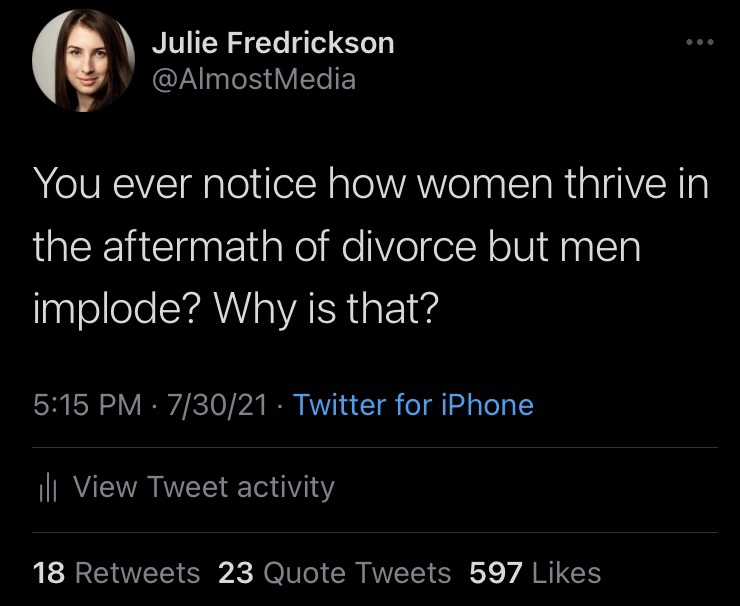I had a really terrific September. Everything just started going my way. Projects that I’d been pushing on had significant breakthroughs. My deals got hot. My focus and health improved. Even when I had setbacks and failures I was able to execute on quick recoveries. But mostly I didn’t give in to past bad habits. And all of that happened without any additional effort on my part.
I’ve been making a really conscious effort to stop pushing myself to always be doing more. Either I am able to find elegant solutions or I ask myself to take a step back till I can. Rather than brute forcing everything I am finding ways get where I am going without sacrificing myself to costly bad trades on my time and energy.
I asked for something really significant from one of my investments (an additional allocation for an special purpose vehicle). The second I asked for it I started to panic. I didn’t have an immediate or simple path to deliver on what I asked for from this founder. Even though I was confident I had the money for the deal it out I panicked that maybe I had bitten off more than I could chew. Immediately it started going through my head about how bad I’d feel if failed this founder. I relived the guilt, shame and punishment I had felt in previous failures to deliver for people that trusted me. I hated feeling like I’d failed people.
And I just decided stopped the cycle of worry then. Like turning off a switch. I told myself I could do it, I knew I could do it or I wouldn’t have asked, and that there was simply no way I was going to let down this founder. But this is where I felt the frown Instead of going into overdrive, I stuck by my schedule. I didn’t change anything. I didn’t push myself to a frenzy by adding in calls, pitches & emails. I just put down all the steps I could and would take to make the deal available to the right people and I began.
In the past I would have let that fear drive me. I would have gone into overwork and adding in additional tactics that I didn’t even need to insure I would reach my goal. But here I trusted myself to get the outcome. I didn’t exhaust myself. I took care of myself. And the allocation got filled quickly. I checked the commitments this morning and I’ve only got 15% of the deal left.
